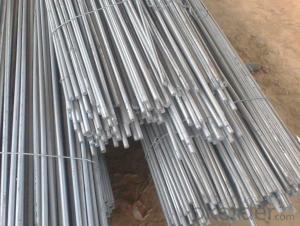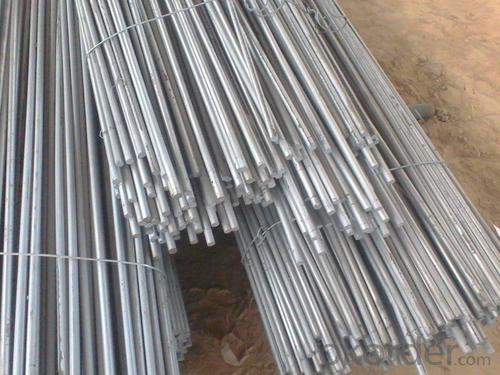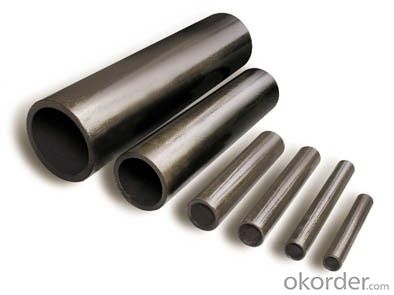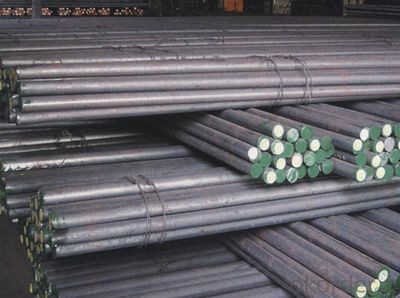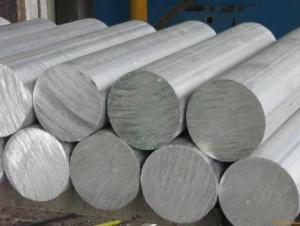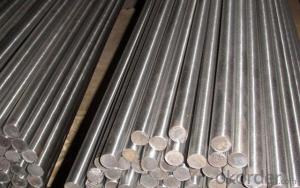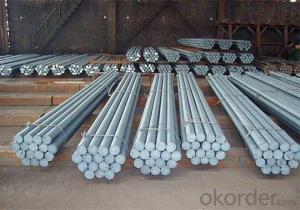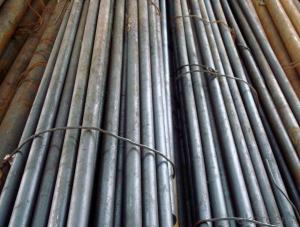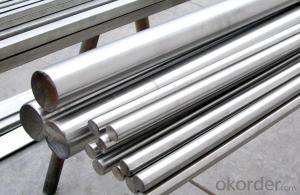Hot Rolled Spring Steel Round Bar 20mm with High Quality
- Loading Port:
- Shanghai
- Payment Terms:
- TT or LC
- Min Order Qty:
- 20 m.t.
- Supply Capability:
- 500 m.t./month
OKorder Service Pledge
OKorder Financial Service
You Might Also Like
Product Description:
OKorder is offering Hot Rolled Spring Steel Round Bar 20mm with High Quality at great prices with worldwide shipping. Our supplier is a world-class manufacturer of steel, with our products utilized the world over. OKorder annually supplies products to European, North American and Asian markets. We provide quotations within 24 hours of receiving an inquiry and guarantee competitive prices.
Product Applications:
Hot Rolled Spring Steel Round Bar 20mm with High Quality is widely used to make the bearing used in automobile, tractor engine, transmission and the wheel. And it also used to make the main bearing for the machine tools, electrical machinery, mining machinery, electric locomotives,mechanical ventilation and high speed of grinding wheel spindle etc
Product Advantages:
OKorder's Hot Rolled Spring Steel Round Bar 20mm with High Quality are durable, diversified and qualified.
Main Product Features:
· Premium quality
· Prompt delivery & seaworthy packing (30 days after receiving deposit)
· Can be recycled and reused
· Mill test certification
· Professional Service
· Competitive pricing
Product Specifications:
Manufacture: Hot rolled
Grade: 20CrNiMoA 20CrNi2MoA 16Cr2Ni4MoA 12Cr2Ni3Mo5A 20Cr2Ni4A 20Cr2Ni2MoA
Cr4Mo4V Cr15Mo4 W9Cr4V2Mo W18Cr4V W6Mo5Cr4V2 5CrMnMo 60CrMnMoNi 37CrA 55SiMoVA etc
Certificates: ISO, SGS, BV, CIQ
Length:6m 8m 9m 12m
Packaging: Packed in bundles with standard export sea-worthy package or as customer require
FAQ:
Q1: Why buy Materials & Equipment from OKorder.com?
A1: All products offered byOKorder.com are carefully selected from China's most reliable manufacturing enterprises. Through its ISO certifications, OKorder.com adheres to the highest standards and a commitment to supply chain safety and customer satisfaction.
Q2: How do we guarantee the quality of our products?
A2: We have established an advanced quality management system which conducts strict quality tests at every step, from raw materials to the final product. At the same time, we provide extensive follow-up service assurances as required.
Q3: How soon can we receive the product after purchase?
A3: Within three days of placing an order, we will begin production. The specific shipping date is dependent upon international and government factors, but is typically 7 to 10 workdays.
Q4: How many types of bearing steel that OKorder.com can supply?
A4: Two types, carbon spring steel and alloy spring steel
Images:
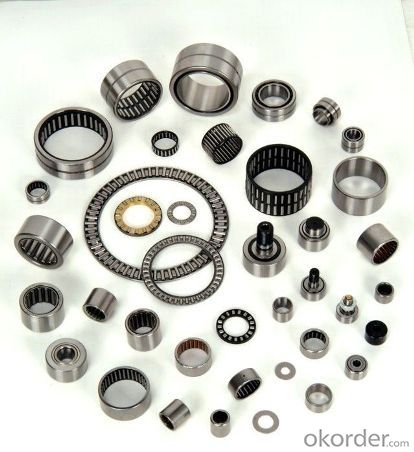
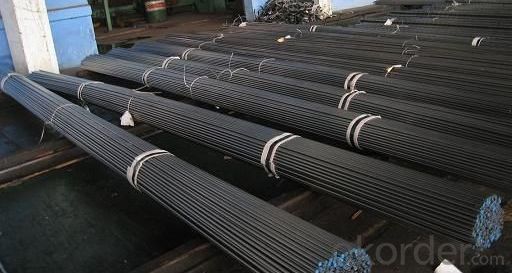
- Q: What are the different forming processes for special steel?
- There are several forming processes for special steel, including hot forming, cold forming, and powder metallurgy. Hot forming involves heating the steel to a high temperature and then shaping it through processes like forging or rolling. Cold forming, on the other hand, involves shaping the steel at room temperature using processes like bending or extrusion. Powder metallurgy involves compacting metal powders and then sintering them to create a solid piece. These forming processes allow for the production of special steel with unique properties and shapes to meet various industrial needs.
- Q: How does special steel contribute to the aerospace aftermarket industry?
- Special steel plays a crucial role in the aerospace aftermarket industry by providing critical components that are essential for the safe and efficient operation of aircraft. The high strength, durability, and temperature resistance of special steel make it an ideal material for various aerospace applications. One of the primary ways special steel contributes to the aerospace aftermarket industry is through the production of engine components. Special steel alloys, such as nickel-based superalloys, are used to manufacture turbine blades, compressor discs, and shafts, which are vital elements of jet engines. These components must withstand extreme temperatures, pressures, and mechanical stresses, and special steel alloys offer the necessary properties to ensure reliable and long-lasting performance. Moreover, special steel is also used in the manufacturing of structural components in aircraft. Steel alloys with high strength-to-weight ratios, such as titanium alloys, are employed for the construction of critical parts like landing gear, wing spars, and fuselage frames. These components need to be both lightweight and strong to withstand the forces and stresses experienced during flight. Special steel alloys provide the required mechanical properties to ensure the structural integrity and safety of the aircraft. In addition to engine and structural components, special steel also contributes to the aerospace aftermarket industry through the production of fasteners, bearings, and other small yet vital parts. These components are responsible for holding various parts together and ensuring proper functioning of systems. Special steel alloys with excellent corrosion resistance, fatigue strength, and wear resistance are utilized to ensure the reliability and longevity of these critical components. Furthermore, special steel plays a crucial role in the maintenance, repair, and overhaul (MRO) activities of the aerospace aftermarket industry. With the rigorous demands placed on aircraft components, regular inspections, repairs, and replacements are necessary to ensure their continued airworthiness. Special steel materials are often used for MRO purposes due to their compatibility with existing aircraft systems and their ability to meet the stringent requirements of aerospace regulations. Overall, special steel is an indispensable material in the aerospace aftermarket industry. Its unique properties and characteristics enable the production of high-performance engine components, lightweight structural parts, and reliable small components. The use of special steel ensures the safety, efficiency, and longevity of aircraft, contributing to the overall success and growth of the aerospace aftermarket industry.
- Q: Can special steel be used for making cutting tools?
- Yes, special steel can be used for making cutting tools. Special steel, also known as tool steel, is specifically designed and manufactured to have excellent hardness, wear resistance, and toughness properties, making it highly suitable for cutting tool applications. The unique composition and heat treatment processes of special steel enable it to withstand high temperatures and maintain sharp cutting edges, ensuring efficient and durable performance for cutting tools.
- Q: How does special steel behave under different types of loading conditions?
- Special steel, also referred to as alloy steel, displays distinctive characteristics when subjected to different types of loads. It is specifically engineered to possess exceptional mechanical properties, rendering it suitable for a diverse range of applications where high strength, toughness, and resistance to wear or corrosion are necessary. Under tension loading, special steel demonstrates remarkable tensile strength and ductility, allowing it to endure pulling forces without easily fracturing. This property makes it ideal for applications where components are exposed to pulling or stretching forces, such as cables, structural elements, or automotive parts. When subjected to compressive loading, special steel showcases its exceptional ability to withstand forces that attempt to squeeze or press it together. This renders it suitable for applications like hydraulic cylinders, crankshafts, or flanges, where resistance to compression is essential. In terms of bending or flexural loading, special steel exhibits outstanding flexibility while retaining its strength, enabling it to endure repeated bending without deformation or failure. This property is particularly advantageous in applications involving springs, suspension systems, or beams exposed to dynamic loads. Special steel also possesses excellent fatigue resistance, which means it can endure cyclic loading or repeated stress without failure. This property is crucial in applications subjected to continuous or repetitive loading, such as turbine blades, gears, or axles. Furthermore, special steel effectively handles impact loading due to its high toughness and impact resistance. This makes it suitable for applications where sudden shocks or impacts are anticipated, such as hammer heads, drill bits, or armor plating. In terms of temperature loading, special steel retains its mechanical properties even at high temperatures due to its exceptional heat resistance. This property makes it suitable for applications exposed to extreme heat or thermal cycling, such as turbine components, exhaust systems, or molds utilized in metal casting. To summarize, special steel exhibits different behaviors under various loading conditions, adapting its mechanical properties to meet the specific requirements of each application. Its unique combination of strength, toughness, ductility, and resistance to wear or corrosion make it a versatile material capable of enduring different types of loading conditions.
- Q: How is special steel stored and transported?
- To maintain the quality and integrity of special steel, it is handled with utmost care during storage and transportation. During storage, the steel is kept in a controlled environment with the right temperature and humidity levels to prevent corrosion and damage. Covered warehouses and storage facilities specifically designed for steel are used to shield it from rain, snow, and sunlight. When it comes to transportation, different methods are employed depending on the quantity and distance. For short distances, smaller amounts of steel are transported using trucks equipped with flatbeds or enclosed trailers. These trucks are designed to securely hold and protect the steel, ensuring it does not shift or get damaged during transit. However, for longer distances or larger quantities, rail or sea transportation is preferred. Rail transportation offers a smooth and stable journey, minimizing the risk of damage caused by vibrations or sudden movements. Specially designed railcars are used to securely store and protect the steel during transit. Sea transportation involves loading the steel onto shipping containers or specialized vessels. Containers are sealed and secured to prevent any movement or damage during the journey. Specialized vessels, such as roll-on/roll-off ships or heavy-lift vessels, are used for oversized or extremely heavy steel components. In all cases, special steel is carefully packaged and secured using appropriate materials like wooden crates, steel strapping, or plastic wrapping to prevent scratches or dents. The transportation process is closely monitored, and necessary precautions are taken to ensure the steel reaches its destination in optimal condition. Overall, the storage and transportation of special steel require thorough planning, proper handling, and the use of specialized equipment to safeguard its quality and protect it from potential damage or degradation.
- Q: Can special steel be used for making oil and gas industry components?
- Yes, special steel can be used for making oil and gas industry components. Special steel alloys are often preferred in this industry due to their excellent strength, corrosion resistance, and high temperature properties. These components are subjected to harsh conditions and require materials that can withstand extreme pressures, temperatures, and corrosive environments. Special steel alloys, such as stainless steel or superalloys, are specifically designed to meet these demanding requirements, making them suitable for manufacturing oil and gas industry components.
- Q: What are the different methods of surface cleaning for special steel?
- There are several different methods of surface cleaning for special steel, each with its own advantages and applications. Some of the most common methods include: 1. Mechanical Cleaning: This method involves the use of mechanical tools like wire brushes, sandpaper, or abrasive pads to physically remove dirt, rust, or other contaminants from the surface of the steel. Mechanical cleaning is effective for light to moderate surface contamination and is often used as a pre-treatment before other cleaning methods. 2. Chemical Cleaning: Chemical cleaning involves the use of specific chemicals or cleaning agents to dissolve or loosen contaminants on the surface of the special steel. These chemicals can be applied through brushing, spraying, or immersion methods. Acid-based cleaners are commonly used for removing scale, rust, or oxide deposits, while alkaline cleaners are effective for removing oils, greases, or organic residues. 3. Electrochemical Cleaning: This method utilizes electrochemical reactions to remove surface contaminants from special steel. Electrochemical cleaning involves the use of an electric current and an electrolyte solution to dissolve or dislodge dirt, rust, or other deposits. This method is particularly useful for cleaning intricate or hard-to-reach areas on the steel surface. 4. Ultrasonic Cleaning: Ultrasonic cleaning involves the use of high-frequency sound waves in a liquid medium to agitate and remove contaminants from the surface of special steel. This method is highly effective for removing fine particles, oils, greases, or other organic residues from complex or delicate surfaces. 5. High-pressure Water Jetting: High-pressure water jetting uses a focused stream of pressurized water to remove contaminants from the special steel surface. This method is particularly useful for removing heavy deposits, coatings, or paints from large areas. It can be adjusted to different pressure levels to accommodate various degrees of surface contamination. It is important to note that the choice of surface cleaning method for special steel will depend on factors such as the type and extent of contamination, the condition of the steel surface, the desired level of cleanliness, and the specific requirements of the application. It is recommended to consult with experts or professionals in the field to determine the most suitable method for a given situation.
- Q: How does special steel contribute to the aerospace racing aftermarket industry?
- Special steel is an essential component in the aerospace racing aftermarket industry as it plays a significant role in enhancing the performance, durability, and safety of aircraft and racing vehicles. Firstly, special steel is used in the manufacturing of critical engine components, such as turbine blades, compressor discs, and shafts. These components must withstand extreme temperatures, pressures, and mechanical stress during operation. Special steel alloys, such as nickel-based superalloys, provide excellent heat resistance, high strength, and exceptional corrosion resistance, ensuring peak performance and reliability of the engine systems. Moreover, special steel is vital in the construction of airframe structures. The lightweight but high-strength properties of special steel alloys, such as titanium alloys, are crucial in reducing the overall weight of aircraft and racing vehicles. This weight reduction contributes to improved fuel efficiency, increased speed, and better handling capabilities, making it an indispensable material in the aerospace racing aftermarket. In addition, special steel is utilized in the production of landing gear systems, which are crucial for safe takeoffs, landings, and overall maneuverability. The landing gear must endure immense forces and shock loads during these operations. Special steel alloys, like chromium-molybdenum steel, offer exceptional toughness, fatigue resistance, and impact strength, ensuring the landing gear's reliability and longevity. Furthermore, special steel plays a crucial role in the manufacturing of aerospace racing aftermarket components, such as fasteners, bearings, and gears. These components require high strength, wear resistance, and dimensional stability to withstand the demanding conditions of racing and provide optimal performance. Special steel alloys, including stainless steel and tool steel, possess these desirable properties, ensuring the longevity and reliability of these crucial components. Overall, special steel's contribution to the aerospace racing aftermarket industry cannot be overstated. Its exceptional properties, including high strength, heat resistance, corrosion resistance, and fatigue resistance, enable the production of reliable, efficient, and high-performance aircraft and racing vehicles. Without special steel, the aerospace racing aftermarket industry would be unable to achieve the level of advanced technology, speed, and safety that it currently enjoys.
- Q: How does special steel contribute to the efficiency of industrial equipment?
- Several factors contribute to the efficiency of industrial equipment, with special steel playing a crucial role. Firstly, the use of special steel alloys offers superior strength and hardness properties compared to regular steel. This enables the construction of more durable and robust equipment, reducing the frequency of repairs or replacements. Consequently, the overall efficiency of the equipment is improved. In addition, special steel alloys demonstrate excellent resistance to heat and corrosion, making them ideal for use in high-temperature or corrosive environments. This ensures that the equipment can operate reliably, even in challenging settings, without compromising performance or safety. Moreover, special steel alloys provide improved machinability, allowing for more precise manufacturing of industrial equipment components. This precision ensures that the equipment is built to exact specifications, resulting in enhanced overall performance and efficiency. Furthermore, special steel alloys can be tailored to possess specific characteristics, such as high conductivity or magnetic properties. This makes them ideal for applications requiring electrical conductivity or magnetism. By customizing special steel, industrial equipment can be developed to meet specific needs, maximizing efficiency and effectiveness. Overall, the utilization of special steel in industrial equipment significantly enhances its efficiency. Through enhanced strength, durability, heat and corrosion resistance, improved machinability, and customization options, the lifespan, performance, reliability, and safety of the equipment are all improved. Consequently, this leads to enhanced operational efficiency and productivity in industrial settings.
- Q: What are the different non-destructive testing techniques used for special steel?
- There are several non-destructive testing techniques commonly used for special steel. These include magnetic particle testing, ultrasonic testing, radiographic testing, eddy current testing, and liquid penetrant testing.
Send your message to us
Hot Rolled Spring Steel Round Bar 20mm with High Quality
- Loading Port:
- Shanghai
- Payment Terms:
- TT or LC
- Min Order Qty:
- 20 m.t.
- Supply Capability:
- 500 m.t./month
OKorder Service Pledge
OKorder Financial Service
Similar products
Hot products
Hot Searches
Related keywords
